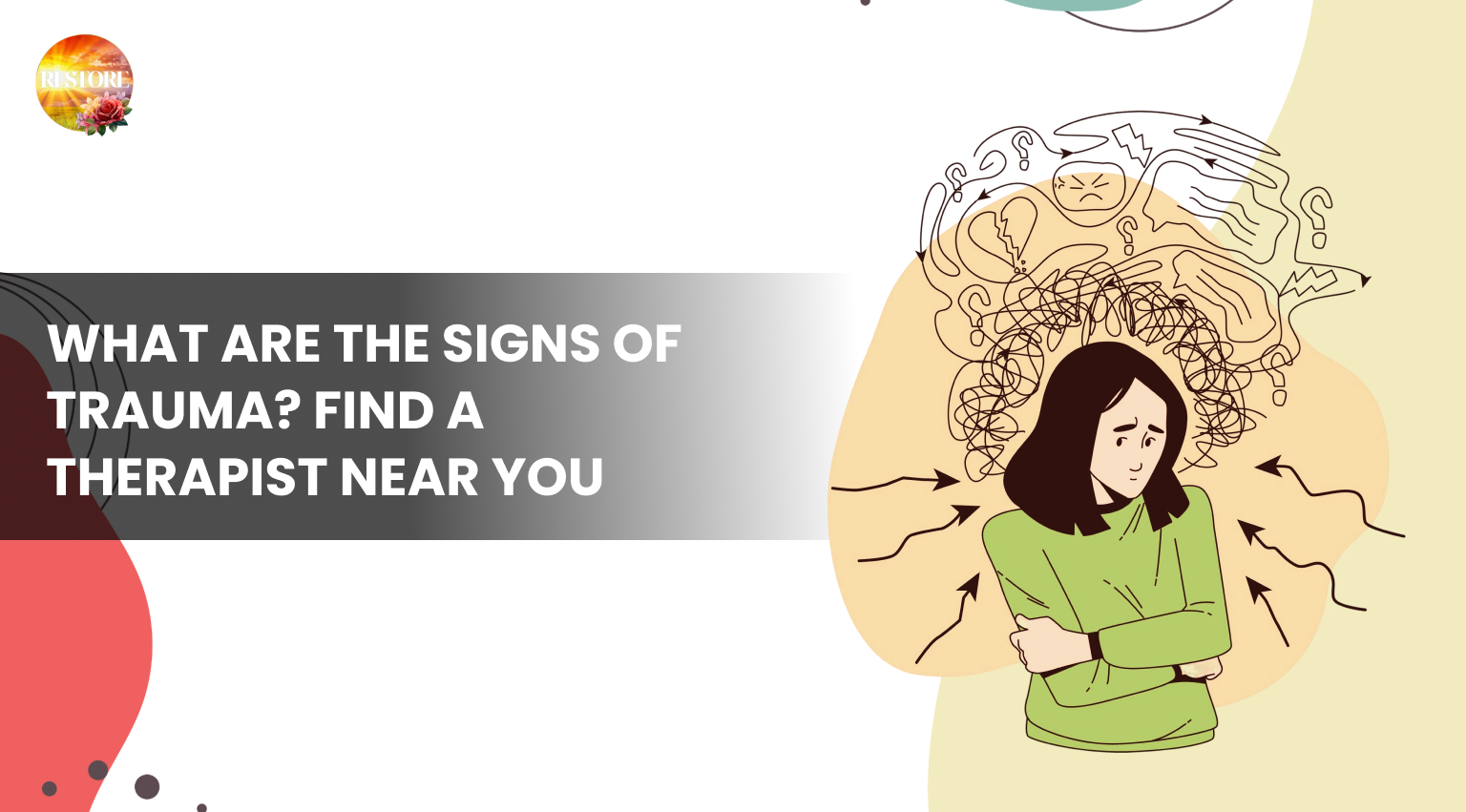
Anyone at any stage of life can be affected by trauma, a profoundly upsetting or disruptive occurrence. Trauma can have long-lasting effects on the body as well as the psyche, whether it is one incident or a sequence of events spanning years. While some people recover with help and time, others could battle residual symptoms that interfere with everyday life.
Healing begins with knowing the indicators of trauma. This guide can help you identify trauma and locate the care you need if you are in Atlanta searching for a therapist close by.
Trauma is an emotional reaction to a catastrophic occurrence as a natural disaster, sexual assault, accident, or death of a loved one. Childhood maltreatment, marital violence, racism, neglect, or continuous exposure to high-stress conditions can also cause it. Trauma is about your mental and physical processing of the experience, not about what happened.
Not every trauma shows up right away. Some people suffer silently since they are not aware that their emotions are connected to trauma. This emphasizes the need of spotting the symptoms.
Trauma can cause rather different symptoms for different people. They can show up shortly following the incident or stay under cover for months or years. Three main categories usually define these symptoms: emotional, physical, and behavioral.
Anxiety and panic attacks
Often brought on by reminders of the trauma, persistent anxiety, worry, or a feeling of overwhelm.
Depression and unhappiness
extreme pessimism, emptiness, or alienation from people.
Irritability or outbreaks of rage
An incapacity to regulate emotions, particularly frustration or rage.
Shown guilt and shame
Particularly common among survivors of violence or assault, feelings of self-blame or worthlessness can be debilitating.
Flashbacks or invasive recollections
Often set off by sights, sounds, or odors, suddenly revisiting the horrific event as though it were happening once more.
Numbing of emotions
struggling to experience connection with people, happiness, or grief.
Chronic tiredness or fatigue
Feeling exhausted regardless of your rest level.
Headaches and muscular tension
Many times, stress shows up physically and causes aches, tension, or migraines.
Issues with the stomach
Common are nausea, irritable bowel problems, or appetite disturbances.
Problems Sleeping
Problems going asleep or keeping asleep, or nightmares upsetting peace of mind.
Avoidance
Steer clear of events, people, and places that trigger painful memories.
Withdrawal and solitude
separating from social events, friends, and family.
Drug abuse
Numb emotional suffering with food, narcotics, or drink.
Hardness focusing
Problems focusing, finishing projects, or remembering things.
Trauma symptoms might fit PTSD if they last more than a month and affect daily activities. Although not everyone experiencing trauma develops PTSD, this major mental illness gains from skilled therapy. Among the signs include increased responsiveness, emotional pain, avoidance behavior, and recurrent flashbacks.
Untreated trauma can affect your relationships, performance at work, and physical condition. Many persons struggling with unresolved trauma find themselves uncomfortable in their own bodies or struggle to trust others. This can result over time in job loss, chronic sickness, or solitude.
Understanding how trauma is showing up in your life will inspire you to move toward recovery.
Therapy provides a private, safe environment for trauma processing and start of recovery. Trained in trauma-informed therapy, a professional therapist will assist you:
No one-size-fits-all method exists. Your therapist might apply Somatic Experiencing, Internal Family Systems (IFS), Cognitive Behavioral Therapy (CBT), Eye Movement Desensitization and Reprocessing (EMD), depending on your needs.
Trauma healing is the area of expertise for many of the mental health experts Atlanta houses. The city provides many of tools whether your search is for holistic healing choices, group support, or individual therapy.
Certain Atlanta practices focus especially on trauma recovery. These clinics might center on PTSD, sorrow and loss, sexual assault recovery, or childhood trauma. Usually, they conduct therapy in-person; many also offer virtual visits.
Trauma is a specialty of several certified therapists in private practice all across Atlanta. You could look on sites like:
Modern Psychology: Today
Therapedia
goodtherapy
Inclusive Therapists
Open Roads Collective (for reasonably priced therapy choices)
Search therapist profiles for qualifications in trauma or PTSD combined with LPC (Licensed Professional Counselor), LCSW (Licensed Clinical Social Worker), or LMFT (Licensed Marriage and Family Therapist).
At cheap or sliding-scale rates, community clinics sometimes offer trauma counseling services. Many Atlanta-based facilities are nonprofit entities providing assistance independent of insurance availability.
Look for materials at:
Psychological programs housed in Atlanta-based colleges
Regional non-profit groups
Center of community health
Usually starting with an assessment, your first session allows the therapist to learn about your goals, history, and symptoms. Therapy may be long-term if you are dealing with complicated or developmental trauma or temporary for recent trauma.
Therapists will never press you to discuss your trauma before you’re ready; they approach gently and nonjudgingly. The approach is cooperative; your therapist will help you to create safety and trust at your speed.
Along with treatment, trauma rehabilitation benefits much from self-care. These are some ways you could help yourself:
Practices of mindfulness including meditation or deep breathing
Movement and exercise including walking and yoga.
Art, journaling, or music—creative expression
Time in the natural surroundings
Creating a support network comprising friends, relatives, or peer groups
Trauma heals not in a straight line and it does not have to be done alone. Many Atlantans have followed this road and arrived at peace because to kind, knowledgeable therapists.
If you find yourself exhibiting the above mentioned symptoms, realize that your experiences are valid and that aid is only waiting. Start by contacting a therapist close by. One is free to ask for help. Actually, one of the bravest moves you can make toward recovering your life.